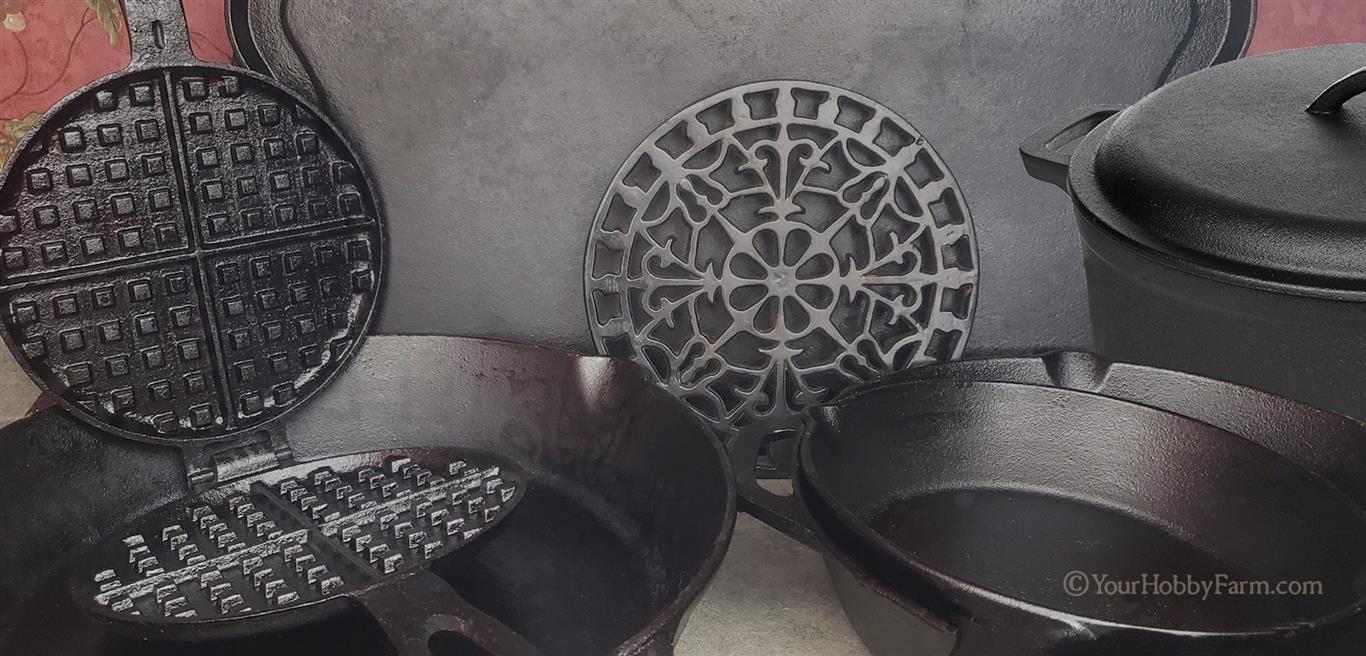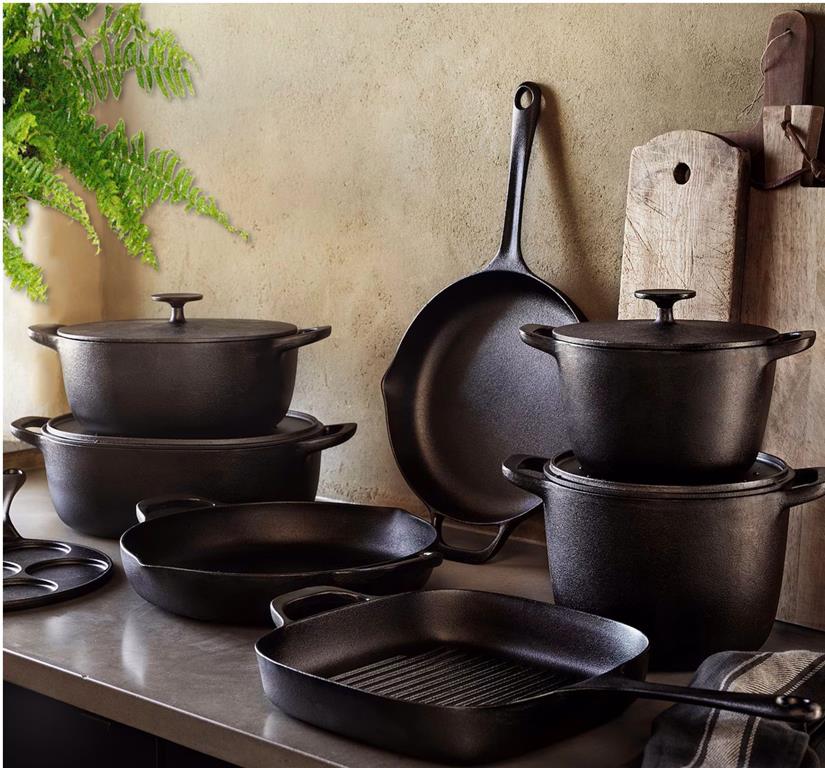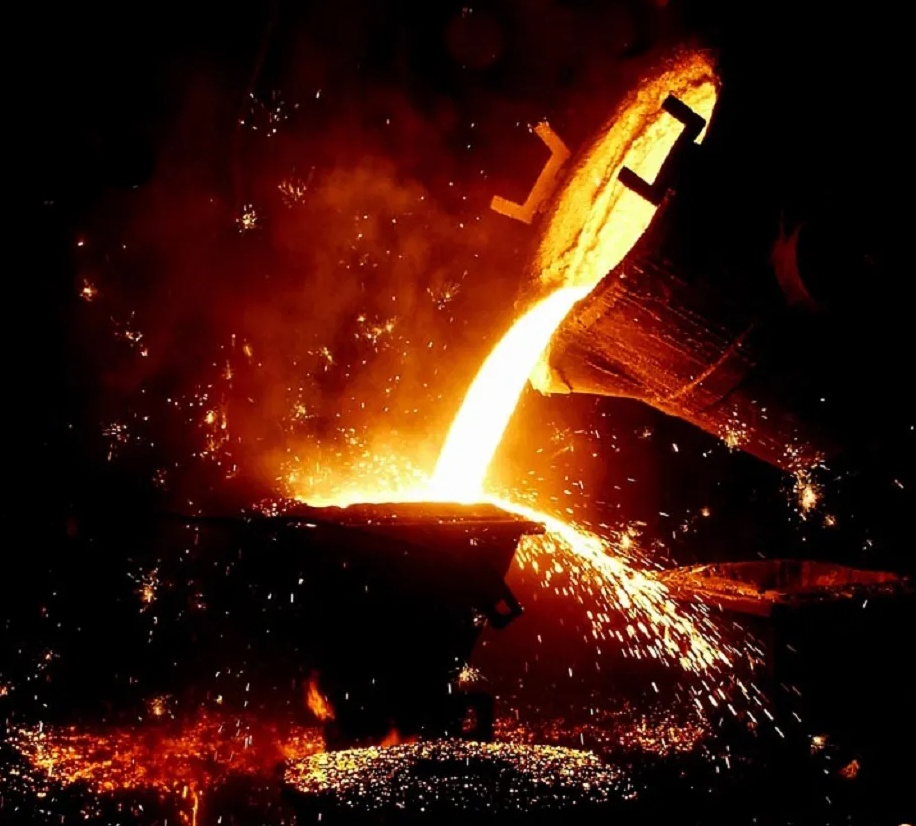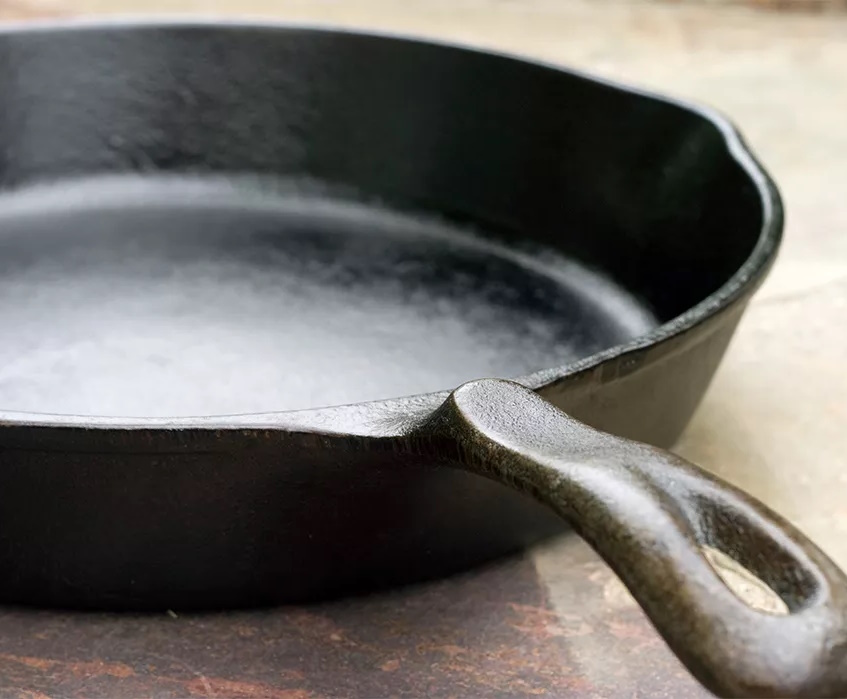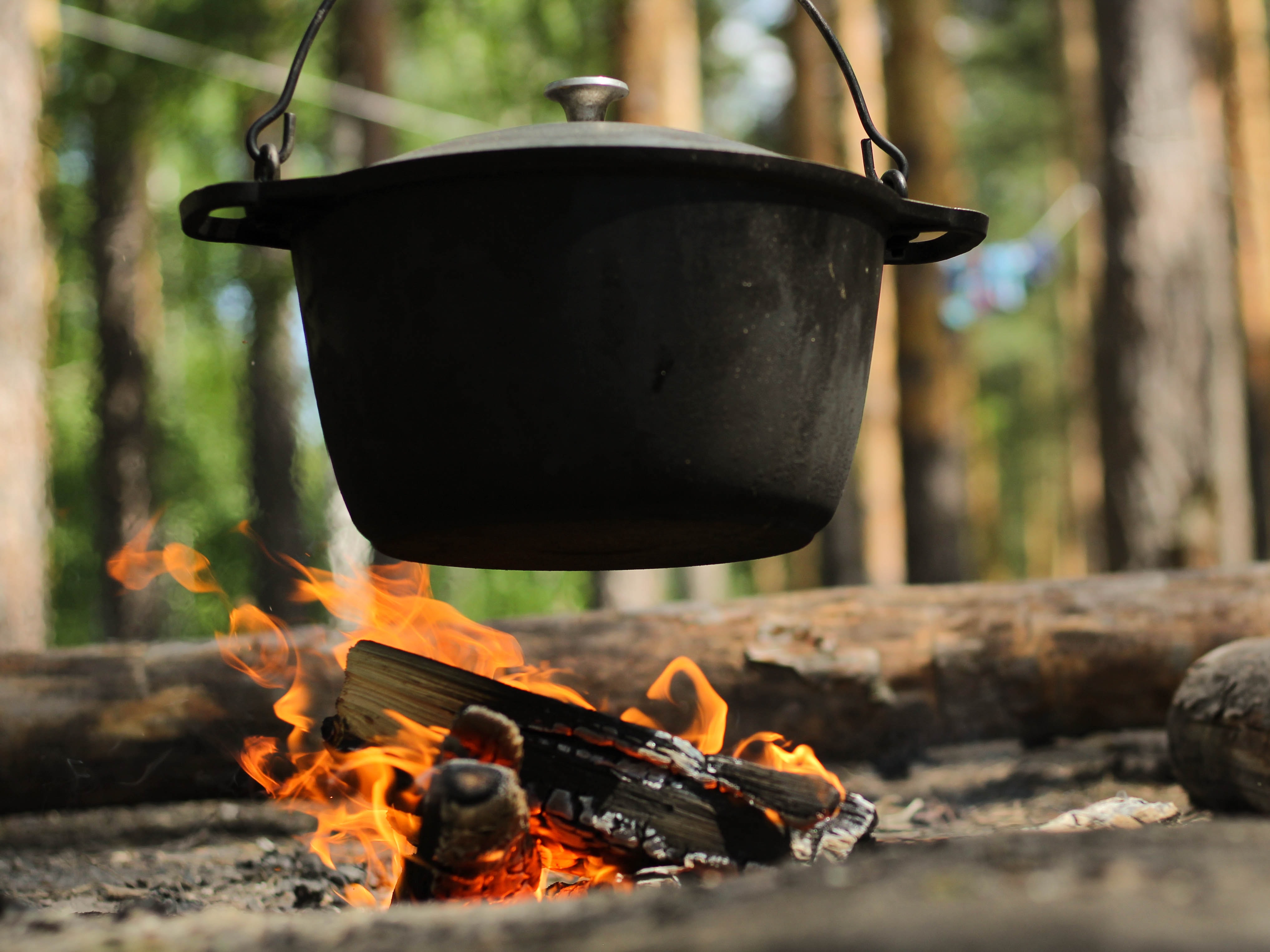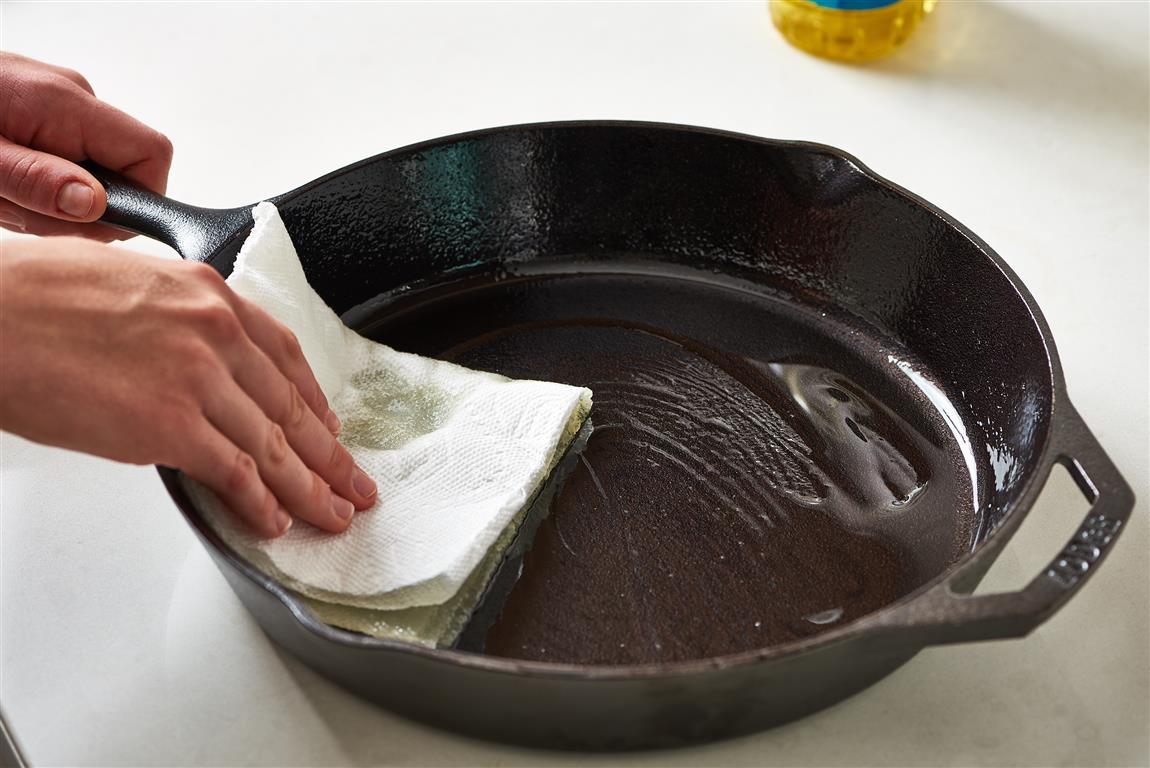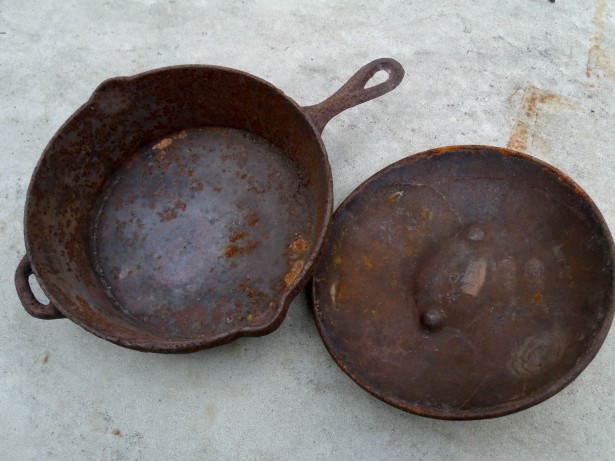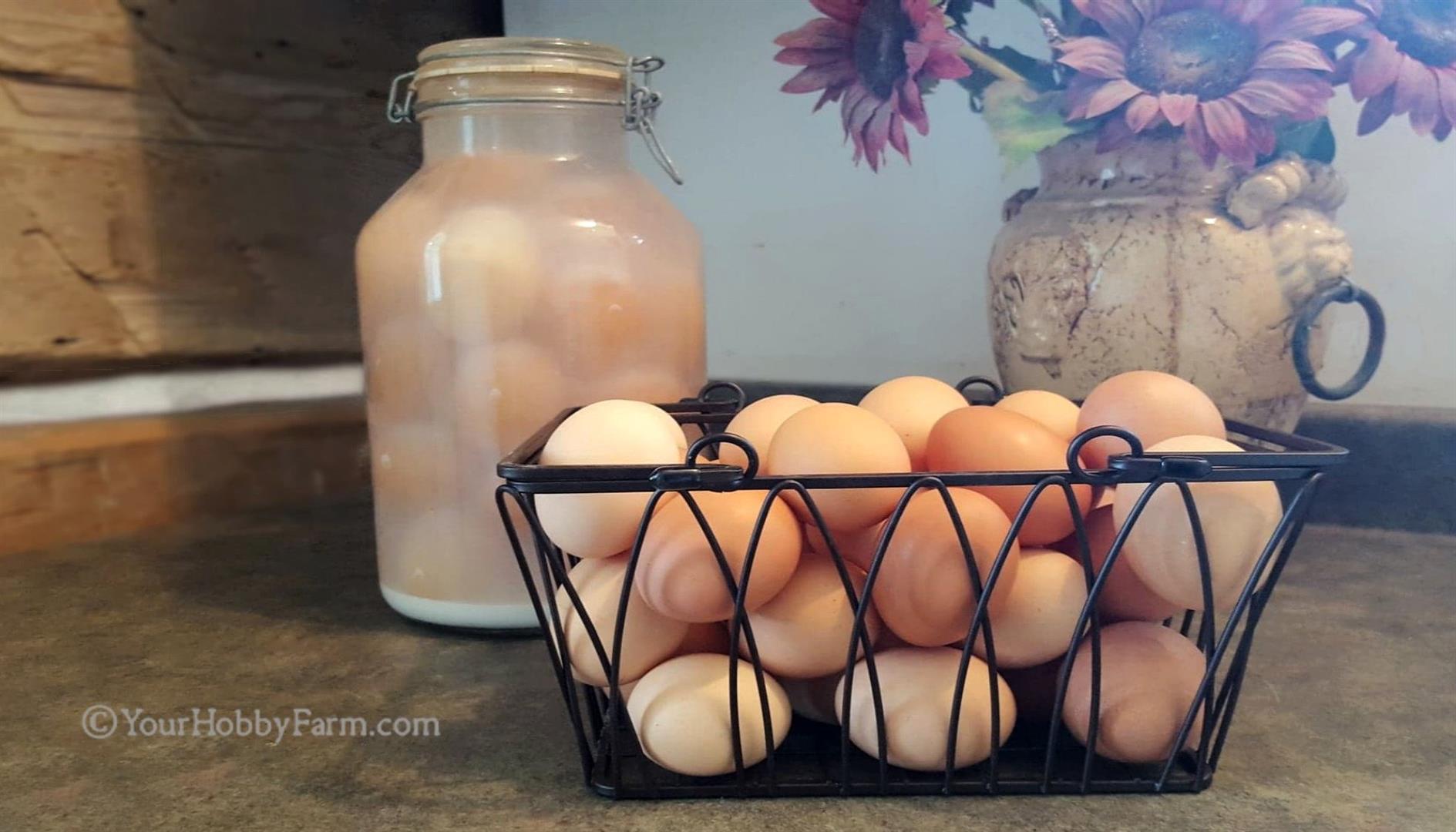Classic Cast Iron Cookware
Hey friends and followers! We're changing our website address from YourHobbyFarm.com to HomesteadJoys.com.
With ongoing homestead responsibilities, this transition may take some time. Save our New Logo and QR code for easy navigation! We’d love you to join us in our journey!
 Homestead Joys Logo
Homestead Joys LogoThere's something nostalgic, quaint, even homespun, about cast iron cookware, giving a sense of heirloom, even if it's a new pan. It feels a bit like a trustworthy friend, even if you've just met for the first time...
Interestingly, good ol' cast iron cookware has been making a real comeback and Grandma's old-time kitchen favorites have become hot items once again! It shouldn't be too surprising though, as this ancient alloy has been so fundamental to human civilization that an entire age was named after it.
Why the Cast Iron Comeback?
Perhaps the increased popularity of cooking with cast iron is part of a broader, growing trend of getting back to the basics.
Many people are increasingly concerned about where things, in
general, seem to be headed in these days. They're becoming more
aware of and troubled about harmful pollutants, chemicals, things like aluminum
and other dangerous additives that have become common in our daily lives.
There seems to be a hunger to pursue healthier life styles which include more homegrown, traditional foods, and ways of preparing them, used by our grandparents. But it's more than that... There are practical and useful benefits of cast iron cookware and good reasons why it's been used around the world for so many years!
While many people may be enjoying this resurgence in popularity, others may be wondering what's so special about cast iron pots and pans! Why cook with cast iron? What are the benefits of cast iron cookware?
First, What Is Cast Iron? And Why Is Cast Iron Black?
Perhaps you're wondering, exactly what is cast iron? Well, we can assure you that it’s not an iron pan being cast, or thrown, by an upset Granny! Rather, it refers to the method by which the pan was made.
‘Cast iron’
is a hard, relatively brittle, alloy of iron and carbon containing a higher proportion of carbon
than steel. The alloy is smelted into a liquid iron mixture, then poured into
molds, and allowed to cool. When cooled, it has solidified into the shape of
the mold into which it was poured, which in this case, is pots and pans,
etc.
Why is cast iron black? Technically, the cast iron pans aren't black. At least, not naturally. New, unseasoned cast iron is a silvery gray color. The black color on cast iron pots and pans is a safe protective layer oil that's been heated up to polymerize and form a coating. This patina of carbonized oil makes the surface of the pan very black and non-stick.
Is Cast Iron Cookware Non-Stick?
Do you find that food sticks to cast iron? Cast iron is often called the original non-stick cookware, which makes sense. For centuries, cast iron was the only non-stick cookware there was. But in the 1900s, we were introduced to commercially manufactured non-stick cookware which relies on chemical-based coatings which we now know present health concerns.
Be assured that the nature of non-stick cast iron cookware does not present the dangers of non-stick cookware made of other materials, especially when it's well seasoned.
What is seasoned cast iron? Since unprotected iron corrodes quite easily, a natural oil, fat or grease is used to build a protective layer over the metal. When properly applied and heated, the oil hardens onto the iron. This is called seasoning cast iron. Over time, as it's maintained, a strong, non-stick layer forms on the surface of the iron. The resulting smoothness resembles a "plastic like" (non plastic) coating bonded to the iron.
If you're finding that food sticks to cast iron pots and pans, it simply means that it needs to be properly seasoned, or re-seasoned. The seasoning on cast iron can wear thin with use and cleaning. It's very important to season a cast iron pan every once in a while, to maintain its non-stick finish.
And one more little tip: adding food to a cold cast iron pan encourages sticking. Preheating the pan can help to prevent this.
Is Cast Iron Cookware Safe?
For well over a thousand years, cast iron has been used as a reliable cooking surface. However, there are growing concerns about the health safety of several types of cookware and the possibilities of chemicals and heavy metals leaching into and contaminating our foods while cooking.
Studies have shown that aluminum cookware, for example, leaches
aluminum into our food which is detrimental
to our health. Cooking with non-stick Teflon cookware also presents serious
health concerns. In light of this, it's a very valid question to ask, is cast
iron cookware safe?
Generally, the amount of iron that might leach into our food when cooking with cast iron is insignificant. Iron is necessary for our bodies to produce hemoglobin, which is how red blood cells carry oxygen throughout the body. For most people a little extra fine is fine, and even advantageous.
But people who may be at rick would be those with an inherited metabolic disorder called hemochromatosis, or iron overload disease. If this applies to you, ask your doctor about a test called the transferrin saturation test which screens for iron overload, before using cast iron cookware habitually, especially if it’s not well seasoned.
Why Cook with Cast Iron?
Benefits of Cast Iron Cookware
Why cook with cast iron? What are the benefits of cast iron cookware? Great questions! There are several good reasons...
While we're sure that there are more, here are 10 benefits of cast iron cookware:
- Versatile usage for cooking and baking
- Good heat retention
- Naturally non-stick when properly cared for, and scratch free
- Long-lasting and durable, often outliving those who use them
- Cost-effective
- Useful for both indoor and outdoor cooking
- Environmentally friendly and sustainable
- Doesn't leach substances hazardous to health
- Healthy to cook with
- Adds a trace amount of iron to one's diet
Cast iron is the most durable and dependable cookware a person can own. It's been used for centuries around the world, and at one time, was the most common and preferred cookware.
Cast iron cookware can be used for broiling, simmering, sautéing, searing, frying, braising, roasting, baking, and more. It can be used in the oven, on the stovetop, on a woodstove, barbeque, or camp stove.
And, cast iron is great for cooking over an open fire: For centuries, cast iron has been used for cooking over open fires. Explorers, traders, pioneers, and settlers knew the benefits of cast iron cookware. Whiffs of mouth watering aromas wafted upward, carried on wisps of smoke, as countless wilderness meals were prepared in old, black cast iron skillets and dutch ovens. The cookware many times outlasted those who used them.
Whether you've inherited an old cast iron dutch oven from your Great Grandmother, or found a cast iron skillet with lid included at a yard sale, or have recently bought your first cast iron cookware set, we're sure you'll appreciate the time-tested advantages of cast iron cookware.
Caring for Cast Iron Cookware
For some reason, cast iron seems to have a reputation for being difficult to take care of, but is it really? While it may a bit different than other pots and pans, there's nothing really complicated about caring for cast iron cookware. If our Great Grandmas were able to pass their cast iron beauties on to us, we can easily learn how to maintain cast iron as well, to pass them on to the next generation as well.
Whether you've just bought a new cast iron skillet or inherited an old cast iron dutch oven, the care of your cast iron cookware is much the same. By the way, since cast iron is so durable, any utensil is welcome: silicone, wooden, and even metal
How to clean cast iron cookware: Usually a thorough wash with warm water and a sponge is sufficient for cleaning cast iron. You can also use a plastic scraper, or a chainmail scrubber if food has gotten stuck.
Although some advise against it, you can use mild soap and scrub your pan, if necessary, then rinse well. If you do use soap, we advise you to re-season your cast iron pan again. Don’t give it a long soak in water, as this can cause rusting. And don't put your cast iron in the dishwasher. This will result in a rusty pan.
You can also use oil and salt to scrub your pan. Rub it in, then rinse thoroughly in warm water.
Always dry promptly with a tea towel or paper towel after washing. For best results, assure that it's fully dry by placing it on a warm stove burner or in a warm oven for a few minutes.
How to season cast iron pots and pans: First of all, what is cast iron seasoning? Seasoning cast iron is the process of coating oil on cast iron then heating it above smoking point, creating a non-toxic non-stick layer.
What's the best oil for cast iron seasoning? Some recommend grapeseed oil or sunflower oil, but any edible oil or fat with a high smoke point will work for seasoning. Using a paper towel or a silicone brush, wipe your cast iron all over with a thin layer of oil inside and out.
Place your pan or skillet in the oven upside down with a piece of foil underneath to catch any dripping oil. Bake for 1 hour on at least 425°F. Then turn the oven off, leaving the door closed. Allow your cast iron to cool for up to 2 hours until it's comfortable to handle.
How to store cast iron cookware: Store your cast iron cookware in a dry place. Some people stack their cast iron skillets between paper towels or absorbent cloths. Others hang them, or place them in a rack.
Is Old Cast Iron Cookware Still Good?
Have you ever come across a piece of rusty, old cast iron cookware in a second-hand store or antique shop? If the price is good, you just might be looking at a kitchen treasure hidden under dust and rust! Believe it or not, in a way, cast iron cookware is like a fine wine. It improves with age.
So, yes! It's ok to buy old used pieces. Dust or light rust can be cleaned and seasoned, and the piece, restored and re-treasured. As long as there aren't any cracks, breakage, warping, or lots of pitting from rust, second-hand cast iron cookware is perfectly fine.
It's really not at all difficult to restore a cast iron skillet or an old cast iron dutch oven. It's worth it to clean it up, reseason it, and put it back to use.
According to many who love cast iron cookware, the older ones are definitely superior to the newer ones. "Cast iron aficionados" swear that older cast iron cookware is better, more durable, often smoother, with better seasoned surfaces, conducting heat more evenly. They're time-tested and have withstood arduous conditions.
As has been beautifully said, "cast iron cookware ages into matriarchs of families, where they hold all the secrets of every ingredient ever tasted." [Provisions Mercantile]
If you're looking for used cast iron cookware for sale and working within a budget, we'd encourage you to look at used stores, thrift shops, yard sales, or flea markets. Or try here to find used cast iron for sale near you. You may discover some nice old cast iron cookware pieces just waiting for you.
History of Cast Iron Cookware
Archeologists tell us that iron was discovered by the Hittites of ancient Egypt somewhere between 5000 and 3000 BC. During this era, they hammered or pounded the metal to create useful tools and weapons.
We don't know how far back the history of cast iron cookware goes, but the earliest accounts tell of cast iron being used in China around 200 BC with the invention of the cast iron wok. It's amazing that the cookware we use today harkens back thousands of years!
Besides China, diverse cultures across the world manufactured their own cast iron cookware for everyday use. From Europe to South Africa and beyond, in kitchens and over outdoor fires, you can be sure that cast iron was used.
Cast iron doesn’t deteriorate with use but, properly cared for, will continue to improve with age. Thanks to its ruggedness, durability, ease of use, and manufacturing, cast iron became very popular throughout the world. Vintage pieces of cast iron cookware may last several lifetimes. Many have become family heirlooms, creating memories for many years.
Looking for Cast Iron Cookware for Sale?
If you're looking for new cast iron cookware for sale, here are a couple of online avenues we can suggest. Try clicking on either of these searches: cast iron cookware on sale, or cast iron cookware near me.
We certainly hope this helps you find what you're looking for! Enjoy your adventures in cooking with cast iron!
Translate This Page!
Traduire Cette Page!
¡Traduzca Esta Pagina!



Piping Rock©
Bringing you the highest quality In hundreds of health care and life-enhancing natural products at the
lowest cost to you!
high reviews, crazy deals,
happy, healthy customers!
Click here and save today!
Business Appreciation
* This website is not affiliated with
Piping Rock

Supporting our local feed mills
Meunerie Alexandria Milling
613-525-1973
Great Products • Great Prices
Great Service
Click the pic for their
facebook page!
Meunerie Alexandria Milling
Established in 1962 by The Massie Family
Email: Alexandriamilling@hotmail.Ca
475 Massie Crescent
Alexandria, Ontario, Canada
~~~
Small Business Appreciation
* This website is not affiliated with
Meunerie Alexandria Milling

